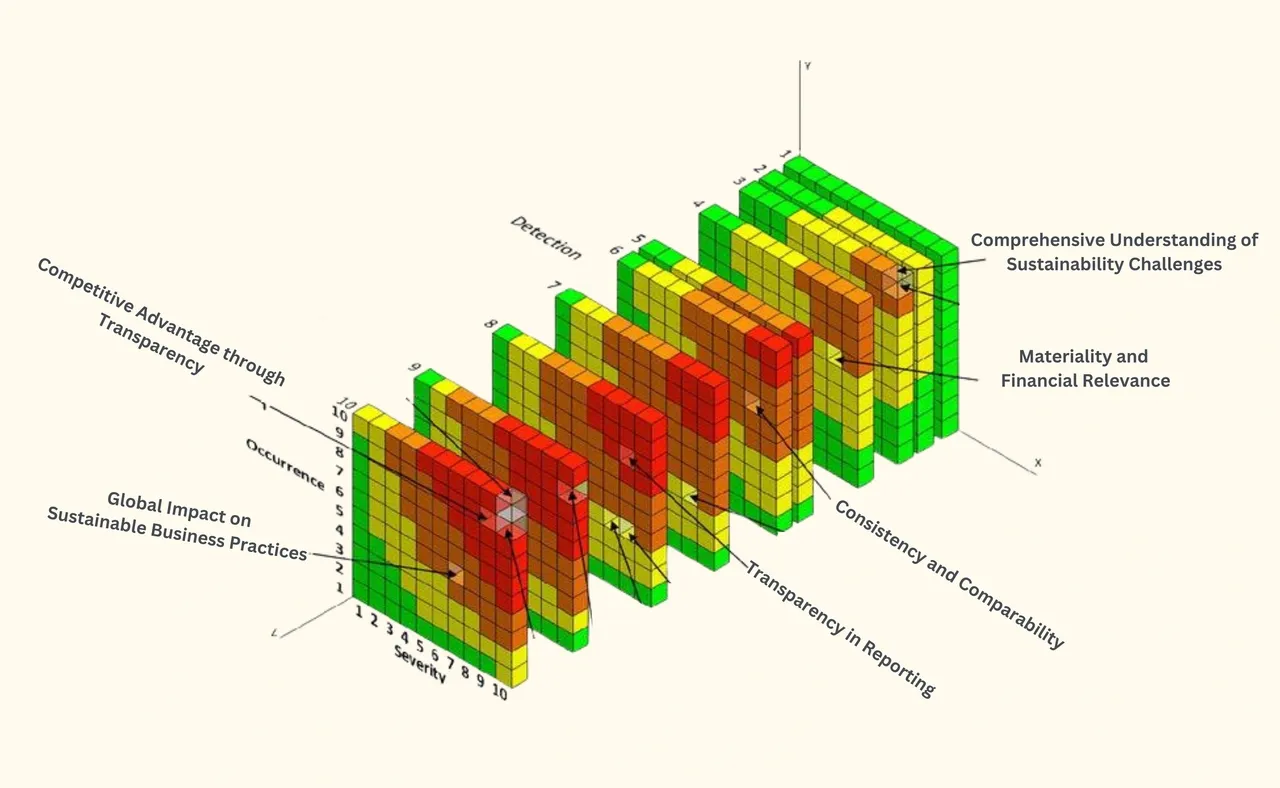
SASB, founded in 2011, shapes corporate risk assessment by integrating sustainability factors into financial reporting. Provides industry-specific standards for disclosing material, financially relevant information related to environmental, social, and governance (ESG) issues.
-
Comprehensive Understanding of Sustainability Challenges
– SASB’s standards help organizations identify, manage, and communicate financially material ESG risks and opportunities.
– Enables evaluation and disclosure of the impact of sustainability factors, such as carbon emissions and community relations, on financial performance.
-
Materiality and Financial Relevance
– Emphasizes the importance of reporting on material sustainability factors for effective risk assessment.
– Enhances decision-making within organizations and provides investors with a clearer picture of sustainability’s impact on long-term financial value.
-
Consistency and Comparability
– Fosters consistency and comparability in sustainability reporting across industries.
– Enables stakeholders to assess and compare risks and opportunities consistently, aiding investors in integrating ESG considerations into their decisions.
-
Transparency in Reporting
– Encourages companies to provide clear and concise disclosures regarding sustainability performance.
– Transparency enhances stakeholders’ ability to evaluate a company’s commitment to responsible business practices.
-
Competitive Advantage through Transparency
– Companies prioritizing transparency in sustainability reporting gain a competitive advantage.
– Transparency is crucial as sustainability becomes a significant factor in investment decisions.
-
Global Impact on Sustainable Business Practices
– SASB’s influence on risk assessment contributes to a more sustainable and resilient global business environment.
– Recognizes the growing importance of sustainability in long-term value creation.







